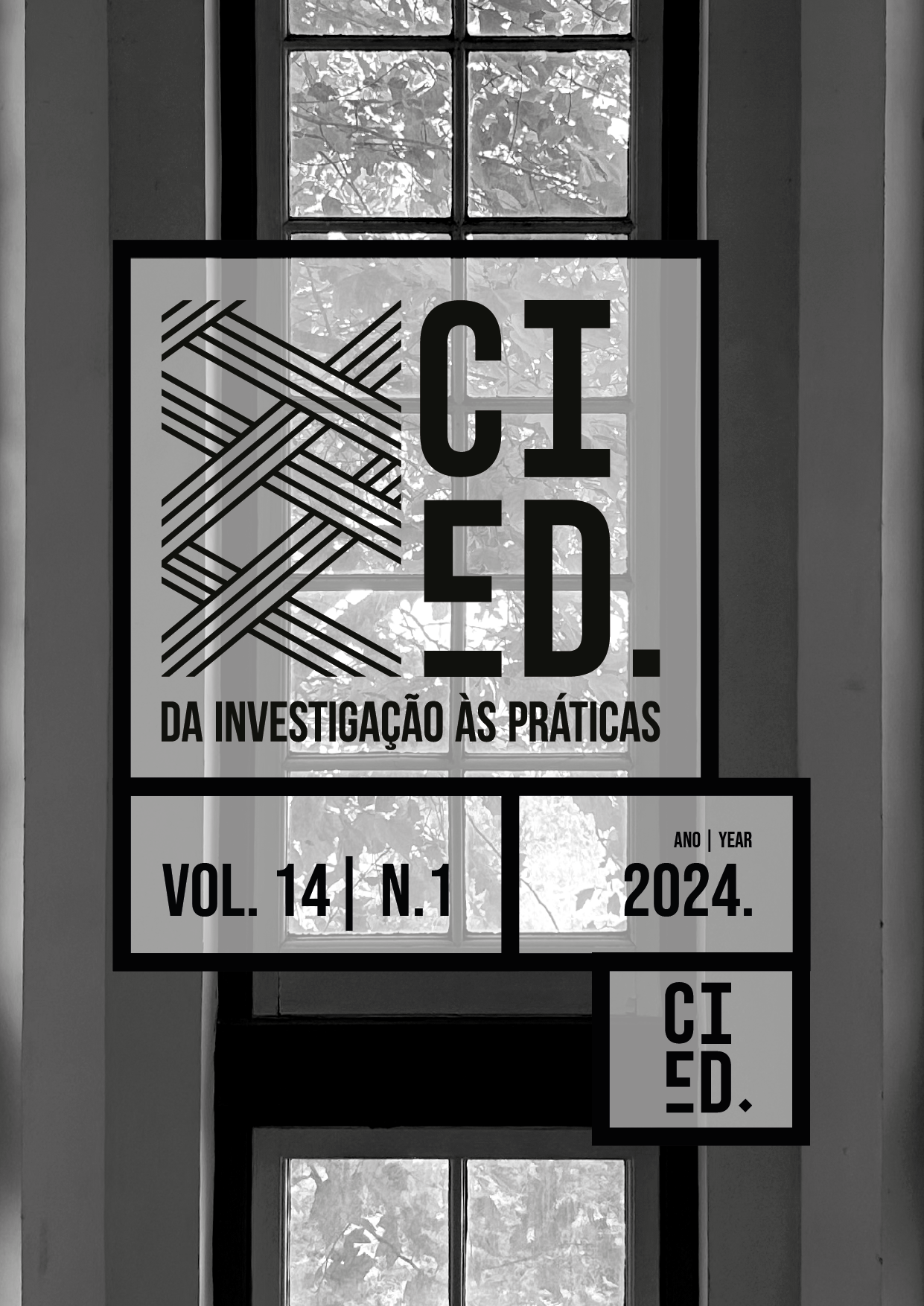The quilombola people's fight for their historical, educational rights and conflicts in the countryside
DOI:
https://doi.org/10.25757/invep.v14i1.356Keywords:
Conflicts in the field, Rights, Education, QuilombolasAbstract
Discussions about the rights of the quilombola people are increasingly important in society. In this sense, the present study aimed to discuss the struggle of the quilombola people for their historical rights. It was also approached about the main conflicts in the countryside involving the quilombolas, and their issues regarding access to education. The methodology used was a bibliographic study with a descriptive and exploratory approach. Through the study, it was noticed that the reality of the quilombolas in terms of access to their rights is still not ideal. Thus, it is the duty of the State to implement the right to health, education and property of these communities, as the fight against land expropriation is still very present in their lives. With regard to education, it was found that there was an increase in the number of quilombola schools in the country, which facilitates access to education. However, there is still a need to train teachers in these locations. From this perspective, it was concluded that quilombola education proves to be efficient and necessary for its people insofar as its structural and pedagogical conditions can provide an educational practice consistent with what is foreseen in the Curriculum Guideline.
Downloads
References
Beneditti, A. C. (2020). Quando e fala em Terra: A constituição de Arena Pública em torno da titulação de territórios Quilombolas no Rio Grande Do Sul. Universidade Federal do Rio Grande do Sul. Porto Alegre,1,(1), 15-23.
Brasil. (2023). Ministério da Educação. Diretrizes Curriculares Nacionais Gerais da Educação Básica. Acessado em 17 mar 2023
Brasil. Constituição (1988). Constituição da República Federativa do Brasil: promulgada em 5 de outubro de 1988. Acessado em 17 mar 2023
Brasil. Decreto Lei nº 4.887, de 20 de novembro de 2003. Regulamenta o procedimento para identificação, reconhecimento, delimitação, demarcação e titulação das terras ocupadas por remanescentes das comunidades dos quilombos. Diário Oficial da República Federativa do Brasil, Brasília, 21 de novembro de 2003.
Campos, M. C; Gallinari, T. S. (2017) A educação escolar quilombola e as escolas quilombolas no Brasil. Revista NERA, 20(35), 41-52.
Carril, L. F. B. (2017) Os desafios da educação quilombola no Brasil: o território como contexto e texto. Revista Brasileira de Educação. 22(69), 18-21.
Feliciano, C. A. (2016) A prática da violência no campo brasileiro do século XXI. In: RAMOS FILHO, SANTOS, L. R. MITIDIERO, M. A. A questão agrária e conflitos territoriais. 1(3), 65-72.
Ferreira, M. (2022) Conflitos no campo aumentam sob um governo que trabalha contra os povos, afirmam lideranças. (17)04, 89-97.
Gonçalves, C. W. P.; Leão, Pedro C. R. T. (2020), violência e conflito na formação territorial brasileira: Tensões territoriais na ruptura política (2015-2019). Revista da ANPEGE. 16(29), 78-102.
IPEA – Instituto de Pesquisa Econômica Aplicada (2020). Atlas da violência no campo no Brasil: condicionantes socioeconômicos e territoriais. Brasília. 1,(1), 14-19.
INEP. Data Escola Brasil. 2014. Acessado em 17 mar 2023.
Leite, I. B. (2000). Os quilombos no Brasil: questões conceituais e normativas. Revista do Centro em Rede de Investigação em Antropologia. 4(2), 35-47.
Miranda, S. A. (2012) Educação escolar quilombola em Minas Gerais: entre ausências e emergências. Revista Brasileira de Educação, Rio de Janeiro, V. 17, n. 50). 15-21.
Pereira, T. G. N. (2020) Geografia da violência no campo brasileiro. Instituto Claro. 5(1), 30-38.
Ramos, Mariana F. (2022) Quilombolas são as principais vítimas de humilhação no campo, aponta CPT. Acessado em 27 abr 2023
Santos, A. B. (2015). Colonização, quilombos: modos e significados. Brasília: Editora da UNB, V. 22, n. 11, 2015.
Silva, A. R. F. (2018) Políticas públicas para comunidades Quilombolas: uma luta em construção. Revista de Ciências Sociais, 1(48)
Simonetti, M. C. (2009) A Geografia dos conflitos agrários no campo brasileiro: os dados do governo Lula. Revista Perspectivas, São Paulo, 36(12)
Sundfeld, C. A. (org.) (2002). Comunidades Quilombolas: Direito à Terra. Brasília: Fundação Cultural Palmares/ MinC/ Editorial Abaré
Schwartz, R. (2012). Ao vencedor as batatas. Forma literária e processo social nos inícios do romance brasileiro. 6. ed. São Paulo: Duas Cidades; Editora 34. V. 06, n 01
Downloads
Published
How to Cite
Issue
Section
License
Copyright (c) 2024 Vinicius da Silva Freitas, Raquel Pires Costa, Adelcio Machado dos Santos

This work is licensed under a Creative Commons Attribution 4.0 International License.
Articles published or submitted to Da Investigação às Práticas are licensed according to Creative Commons Attribution License (CC BY 4.0). Authors agree that:
Copyrights of all articles published are retained by authors with first publication copyright granted to the journal.
All articles are under the Creative Commons Attribution License recognizing the authorship of the publication and identifying that first publication took place in this journal.
Authors have the right to free distribute or make available in private or institutional pages the version published by Da Investigação às Práticas: Estudos de Natureza Educacional provided the original proper citation.
The journal only accepts articles not published previously (except in the form of an abstract or as part of academic thesis), that it is not under consideration for publication elsewhere. After published, the article cannot be published again partial or totally without the editorial board consent.





 e-ISSN: 2182-1372
e-ISSN: 2182-1372